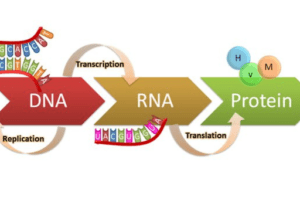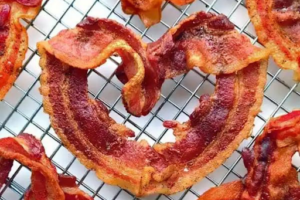Are you struggling to lose extra weight despite a good diet and exercise? You’re not alone. Most people think only of healthy eating and the gym for weight loss. However, hormone imbalances also matter. Many women seek ways to reset female hormones to achieve better weight management and overall health.
Hormones are helpful in supporting the immune system, and maintaining a healthy sleep/wake cycle. They can cause frustrating issues with your body, such as excess weight that refuses to go away despite all of your efforts. You might wonder, like many women, how to reset female hormones for weight loss.
The hormones play a role in the regulation of body weight, and weight loss. They change often, especially for women. They change during your period and at stages of life, such as pregnancy, postpartum, and menopause.
Imbalanced hormones can slow your metabolism, increase appetite, and boost fat storage. This makes weight loss tough for obese people. The good news is you can reset your hormones and lose weight. It is important to care for your hormones, and that means maintaining a healthy balance.
How to reset female hormones for weight loss
Hormonal balance is affected by what you eat, your movement, sleep, and stress management. By making positive lifestyle adjustments, you may be able get back on track.
To reset female hormones naturally, focus on a diet rich in whole foods and regular exercise. Find out how to reset female hormones for weight loss, and improve overall health in this article.
Hormones and Weight Loss: What’s the Connection?
The relationship between hormones, weight loss and metabolism is complex and multi-faceted.
A number of hormones, including insulin, leptin and thyroid hormones, have a significant impact on metabolism, appetite, and fat storage in the body. Unbalanced hormones can interfere with these mechanisms.
Understanding their interrelationships can help you to make the necessary changes in order to correct a hormonal imbalance, and achieve your weight loss goal.
Irregular hormone levels and weight loss

Weight loss can be difficult due to hormonal changes caused by hormone-related conditions such as PCOS and hypothyroidism.
In PCOS, for example, high insulin and testosterone levels can promote weight gain, especially around the midsection.
Hypothyroidism, or an underactive thyroid gland, can slow metabolism and cause weight gain even if you try to consume fewer calories. During menopause, fluctuating estrogen levels may cause your body to store more belly fat.
In order to lose weight, you must address hormonal imbalances. This is often a combination lifestyle changes, medication, and hormone therapy under the supervision of a doctor.
What you need to know about Metabolic Age
You may have heard someone say “I feel like I’m only 30 years old, even though I’m 65.” Your metabolic age can be compared to that.
Metabolic age gives you an idea of how well your body burns energy compared to people who are the same age chronologically.
It compares your basal metabolism rate (BMR), or the number of calories you burn each day just by being alive, to that of other people in your age range. BMR is how many calories you would burn each day if you were to stay in bed and not move.
A lower metabolic age than chronological age indicates that your body burns calories more efficiently. This is a good sign of overall fitness and health.
A metabolic age that is higher than your chronological one could indicate a slower metabolism than the average. If this is the case, you may need to make dietary or lifestyle changes in order to lose weight.
Researchers have found that metabolic age is a good predictor of a person’s risk of developing metabolic syndrome. This clustering condition includes abdominal obesity and other conditions such as high triglycerides (bad cholesterol), high blood pressure, and high sugar levels.
The metabolic age is one way of assessing health. It can still be helpful to understand how your body burns calorie and why it may be resisting weight-loss.
10 Hormones that Affect Weight

When we talk about weight, we tend to focus on the food and exercise that you consume. These are important factors but they are not the only ones.
Hormones play a major role in metabolism, food cravings and hunger-fullness signals. They can also affect how the weight is distributed on the body.
Weight loss is affected by several female hormones. The purpose and function of 10 hormones is explained, as well as how they are involved in women’s weight management.
-
Insulin
Insulin regulates blood sugar levels. It moves glucose from the blood into the cells where it can be converted to energy. This hormone also plays a role in storing extra glucose in the muscles, liver and fat tissue.
High insulin levels can inhibit the breakdown of fat. It can make weight loss difficult, because it signals your body to store extra calories instead of burning them for energy.
-
Leptin
Fat cells produce leptin. It regulates your appetite and the amount of energy you burn. This hormone tells the brain that there is enough fat in the body. It then signals your appetite to reduce and your metabolism to increase.
Leptin resistance and obesity are linked. It occurs when the body does not respond to hormone signals properly, resulting in overeating or difficulty losing weight even though you have enough body fat.
-
Ghrelin
Ghrelin, a hormone that is produced by the stomach to stimulate appetite, is also known as a hunger-stimulating hormone. It tells you to eat by acting on your hypothalamus, the part of your brain responsible for hormones related to mood, appetite and body temperature.
If ghrelin levels rise, often when dieting or weight loss is being attempted, it can cause increased hunger.
-
Glucagon-Like Peptide-1
You may have heard about glucagon like peptide 1, or GLP-1, given the popularity of weight-loss injections and medications for obesity management. This hormone is produced by the intestines as a response to food.
GLP-1 plays a major role in the management of blood sugar. It causes the release insulin from the pancreas, and inhibits glucagon release. It also slows the rate of emptying your stomach, which can help you feel satisfied for longer and prevent overeating.
-
Estrogen
Estrogen, also known as the primary female hormone for sex, is also involved in metabolism.
Estrogen regulates fat storage and distribution throughout the body. For women, this is more concentrated in the hips and thighs.
The metabolism can be disrupted when estrogen levels fluctuate or are out of balance, such as during menopause. This can lead to an unintentional gain of weight.
-
Cortisol
Cortisol is often referred to as the “stress hormone”. When you are under stress, it increases your blood sugar level in order to give you energy.
This response may be helpful in the short term, for example, if you are running from a bear. However, elevated cortisol can cause metabolic disruption and increase fat storage.
-
Cholecystokinin
When fats and protein are present in your digestive system, the small intestine releases cholecystokinin. This causes a feeling of fullness by slowing down the gastric emptying.
When your body does not have enough CCK it can increase your appetite and make it difficult to achieve the necessary calorie deficit.
-
Peptide YY
When you consume protein and fat, your GI tract releases the hormone peptide-YY.
This hormone acts on your brain’s appetite centers, helping you to control your food intake by promoting fullness. This hormone can help you achieve your weight loss goal by balancing it.
-
Neuropeptide Y
Neuropeptide Y (a brain chemical) stimulates appetite. It helps in the storage and burning of energy.
You may experience increased appetite and weight gain when neuropeptide-Y levels are elevated.
-
Testosterone
But isn’t testosterone predominantly a male hormone, right? Yes, it is. It’s produced by women’s ovaries, but in a much smaller amount.
It is also involved in maintaining lean muscle mass. It can also affect how fat is distributed throughout the body. Low testosterone levels can lead to an increase in abdominal fat.
Read Also: How to Lose Weight Fast
How to reset female hormones for weight loss

In order to maximize female hormone levels and lose weight, lifestyle changes are necessary. These include eating a healthy diet, exercising, managing stress, and getting enough rest.
These strategies not only help you lose weight, but they also enhance your overall health. Here are some things you can do.
-
Get Active
Exercise is a great way to support your weight loss goals. It burns calories and helps regulate hormones. How? How?
Exercise helps to combat insulin resistance and improve blood sugar regulation. When you are active, your testosterone production also increases. This promotes the growth and maintenance of lean muscles, while also boosting weight loss and fat metabolism.
Weight loss can be achieved by combining cardiovascular exercises like swimming, cycling, running, or group fitness classes with strength training and resistance exercises. It has been proven that resistance training improves insulin sensitivity and blood glucose regulation.
A study of elderly Korean women found that 60 minutes of physical activity, multiple times per week, had a positive impact on hormone status and physical performance.
-
Make healthy food choices
What you put into your body has a major impact on your weight. Eating more foods that are high in nutrients can support hormone production and make it easier for you to lose weight.
Diets that reset hormones are often based on a Mediterranean diet, vegetarian diet, dairy-free diet, or other plant-based diet patterns.
Minimally processed foods include fruits, vegetables and whole grains. Also, choose lean proteins, nuts, seeds and legumes. These foods have fewer calories by nature than ultra-processed food (think packaged snacks, baked goods and sodas). These foods are rich in fiber, vitamins, minerals and help regulate insulin levels.
-
Healthy Stress Management
There are many reasons why modern living can be stressful. It’s important to find ways to reduce stress to prevent it from affecting your health, both physically and mentally.
Stress can cause hormonal imbalances and weight gain unintentionally (as well weight loss problems).
Consider your stress triggers, and how you can overcome them. Some ideas are: deep breathing, nature walks, yoga, journaling, listening to relaxing music, meditation.
You can avoid eating junk food or overeating when you are stressed by incorporating these practices.
-
Catch Better Zs
Experts recommend that adults sleep seven to nine quality hours every night. Being well rested not only helps prevent crabbiness, difficulty focusing and other negative emotions but also supports hormone balance.
Better sleep can help regulate the production ghrelin, leptin and other hormones that are responsible for appetite and satiation. You’re more likely than not to overeat when these hormones are off kilter.
-
Speak to a Healthcare Professional
Weight management can be a complex and individual process.
Talking to your doctor about weight loss may be the best option if you are having difficulty losing weight. You can find out if you have hormone imbalances, and if so, they can help you reset your hormones to lose weight.
A medical professional, whether it is your primary care doctor, a dietitian who specializes in female weight-loss or a hormone specialist, can customize a plan for your needs.
You may want to discuss hormone replacement therapy, intermittent rapiding, supplements, weight-loss medications, or other innovative ways of balancing hormones.
Get Your hormones back on track
Hormones play a role in almost every aspect of our lives, whether they are to blame for PMS-induced bloating or chocolate cravings, or adult acne that we thought we had left behind when we turned 17.
Weight loss involves more than just calories consumed and calories expended. Women’s health can easily overlook the importance of balancing hormones to lose weight. But not you!
What’s the truth about female hormones?
- There are many hormones involved. You hormones always work, whether you like it or not, to control your appetite, food intake, metabolism, and fat storage. Instead of trying to focus on one thing, it might be better to take a more broader approach and make multiple lifestyle changes.
- Weight loss strategies include hormonal balance. Healthy eating, regular exercise, better sleep and stress management are all ways to achieve both hormonal balance and weight loss. It should be a relief to not have to work twice as hard to achieve two goals.
- Seek professional help. Weight loss is a complex issue, and hormones can be complicated. A healthcare provider will be able to determine if the problem is a hormonal imbalance or something else. A dietitian will also help you develop a plan.
Related Blogs:
Tips to Lose Weight in Just 2 Weeks
How Much Water Should I Drink a Day?
Conclusion
Here’s how to reset female hormones for weight loss, increased energy, and better health. To reset female hormones for weight loss, take a holistic approach. This involves adjusting your diet, exercising, managing stress, and ensuring enough sleep. Start with a balanced diet. Focus on nutrient-rich foods, healthy fats, protein, and fiber. This aids hormonal health. Regular exercise, especially strength and cardio, boosts insulin sensitivity and aids weight loss. Stress management through activities like yoga and meditation is crucial. Good sleep is essential for hormone balance. Avoid hormone disruptors and stay hydrated. Regular checkups and professional advice on supplements or therapy are also important. Be consistent and patient. It takes time to balance hormones and lose weight. These steps will reset your hormones and improve your well-being.







